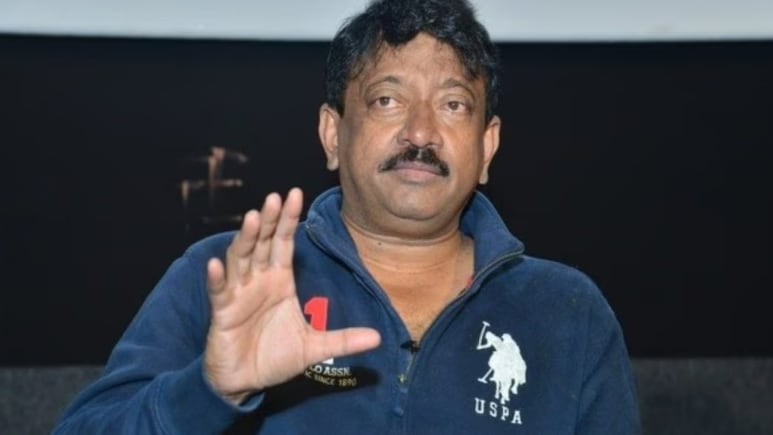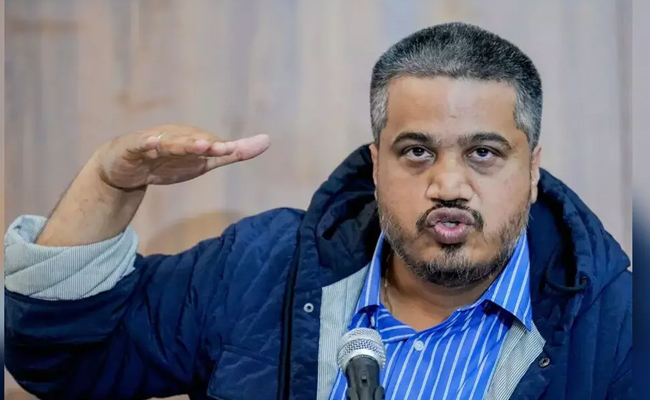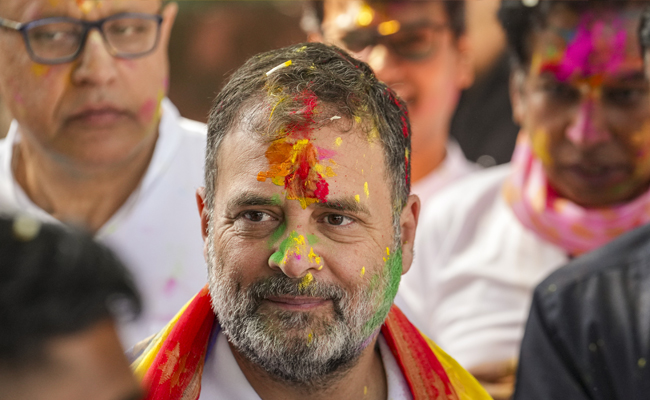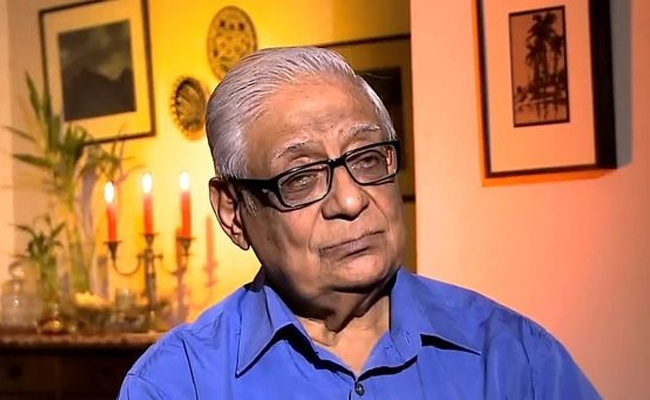Mumbai (PTI): A sessions court here has issued a non-bailable warrant against filmmaker Ram Gopal Varma after rejecting his plea for suspension of jail sentence in a cheque bounce case.
Earlier, on January 21, Judicial Magistrate (First Class) in Andheri, Y P Pujari, convicted Varma for the offence punishable under provisions of the Negotiable Instruments Act. The magistrate had sentenced the filmmaker to three-month jail term and directed him to pay Rs 3,72,219 to the complainant within three months.
The filmmaker subsequently filed an appeal before the sessions court, seeking suspension of the sentence. Additional Sessions Judge A A Kulkarni, however, rejected his plea on March 4 and issued NBW against the filmmaker as he did not appear before the court and rejected his plea for suspension of the jail sentence. he matter has been adjourned to July 28 for execution of the warrant. The judge said the accused is at the liberty to file for bail after appearing before the court.
A company in 2018 lodged a cheque bounce complaint against Varma's firm.
Advocates Rajesh Kumar Patel, appearing for the complainant's company, had filed an affidavit before the magistrate court that the company was engaged in the business of providing hard disks for the last several years. As per the request of the accused, it had provided hard disks between February 2018 and March 2018, based on which various tax invoices amounting to Rs 2,38,220 were raised, the affidavit said.
The accused issued a cheque on June 1, 2018 to the complainant, which was dishonoured for insufficient funds, it said. After this fact was brought to the notice of Varma's firm, a second cheque of the same amount was issued, which too was dishonoured due to "payment stopped by drawer". The complainant was left with no option to avail legal remedy, the affidavit had added.
Varma is known for making films like "Satya", "Rangeela", "Company" and "Sarkar", among others.
Let the Truth be known. If you read VB and like VB, please be a VB Supporter and Help us deliver the Truth to one and all.
Mumbai (PTI): NCP (SP) MLA Rohit Pawar on Wednesday alleged that someone was trying to save VSR Ventures in connection with the plane crash that killed Maharashtra deputy chief minister Ajit Pawar, and claimed that the AAIB preliminary probe vindicated the doubts earlier raised by him.
He also accused VSR company of indulging in several grave lapses in the past.
The Learjet 45 aircraft, operated by VSR Ventures, crashed near the Baramati air strip in Pune district on January 28, killing Pawar and four others.
In its 22-page preliminary report on the VSR Venture's Learjet plane crash, the Aircraft Accident Investigation Bureau (AAIB) said the visibility at the time of the crash was below the required level. It also flagged about fading marks on the runway and presence of loose gravels on the runway surface.
Pawar said, "I am not against VSR or the Directorate General of Civil Aviation (DGCA). Ajitdada was travelling in a VSR aircraft. Unless we go into the depth of every aspect, we will not know the truth. But someone is trying to save this company. The doubts we had raised have been proven correct in the inquiry report."
He also claimed that the AAIB report contained discrepancies, including mentioning Baramati as a district, and questioned how seriously the probe had been conducted.
Pawar, who has been regularly holding press conferences to raise issues concerning the Baramati plane crash, also contested the report's conclusion that the aircraft hit trees before crashing.
"The report says the aircraft struck trees and then fell. But there are no trees at that spot. There is only a small bush which the aircraft did not even touch. What is stated in the report about hitting trees is incorrect," he said.
Pawar further alleged that VSR Ventures had displayed irresponsibility on multiple occasions, citing an incident involving the then chief minister Eknath Shinde's Davos visit on January 20, 2023.
He claimed that the aircraft carrying Shinde had entered Iranian and Iraqi airspace without overflight permission, following which fighter jets from the two countries allegedly warned of action, forcing a change in route from Bahrain to Zurich.
"There have been several such grave lapses by VSR," he said.
Pawar demanded to know from where VSR Ventures derived its "audacity", and sought details about its investors and officials, though he added that he was not personally concerned with who they were.
Drawing a comparison, he said the Central Bureau of Investigation (CBI) had taken over the probe into actor Sushant Singh Rajput's death within two days, whereas a month had passed since the Baramati crash without a similar action.
He claimed that VSR Ventures had two directors and three shareholders, and that there were eight common names across two related companies.
He further alleged that the owner of VSR was related to the Union Civil Aviation Minister and questioned why the company, though registered in Delhi, had made high-value investments in Jubilee Hills (upscale area in Hyderabad) at rates allegedly Rs 17 crore above the market price.
The MLA representing the Karjat-Jamkhed assembly constituency in Ahilyanagar district also raised concerns about the legal and institutional framework of the AAIB under the 2017 rules, claiming it was neither a statutory nor an autonomous body and remained answerable to the secretary and the minister, besides being attached to the DGCA.
"There is no independent investigative agency," he alleged.





